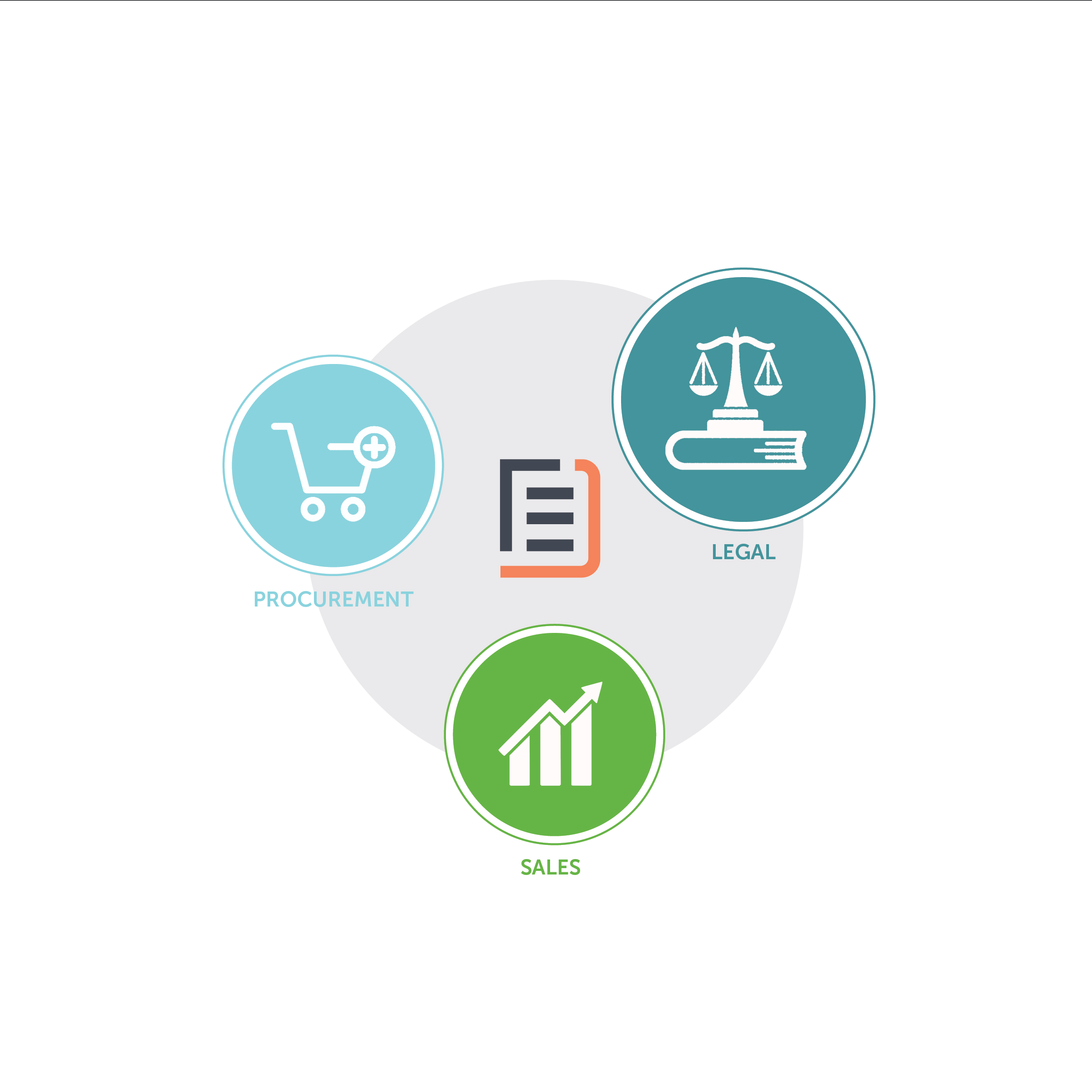Who Are The Top 3 Stakeholders In Contract Negotiations?
In contract negotiations, legal, procurement, and sales teams are key. DocJuris streamlines collaboration, improving contract review and redlining.

Which Department Needs To Be Involved In Contract Negotiations?
For a lot of companies, it's the legal team. Contracts are legal documents; therefore, they're the legal team's responsibility, right?
Yes … and no.
Of course, legal teams play a prominent role in contract negotiations. They're the ones who understand the nuances of contract language and can ensure that the contracts are written in a way that protects the organization without committing to promises it can't keep.
But legal is far from the only team that should be considered a critical stakeholder during the contract negotiation process.
For example, the legal department doesn't know critical information about other departments, like finance, tax, operations, procurement, sales, and insurance. Just as you wouldn't expect your finance department to jump in and handle legal matters, you can't expect your legal department to know the ins and outs of accounting.
So, when your organization has contracts to review and negotiate, you need to ensure that the right teams are involved from the start. That means it's time to stop viewing contract negotiations as a serial process, in which one stakeholder gives their input, and then another, and then another, and so on. Instead, organizations need to start understanding contract negotiation as a mutual process where every stakeholder is involved at the same time.
Seem impossible? Like some far-fetched utopian ideal that sounds good in theory but could never happen in the real world?
Well, we've got good news for you. Keep reading to see how DocJuris can help all the stakeholders involved in your contract negotiations redline and review contracts at the same time without getting in each other's way.
Who make up the Top 3 Stakeholders in Contract Negotiations?
When it comes to contract negotiations, the top three stakeholders in an organization are the legal, procurement, and sales teams.
The legal team holds the pen and writes the language within the contract. They're responsible for ensuring the contract meets all legal requirements.
The procurement team is the key manager of obligations. They're responsible for the finer details of operations.
The sales team is responsible for revenue operations. Therefore, they should be involved in any mentions of money within the contract.
At a minimum, these three teams need to be involved in every contract negotiation. However, they are far from the only teams that can be included.
Precisely who you bring into contract negotiations outside of the above three teams will depend on the nature of the contract. Not every team will need to be involved in every contract. However, make sure you consider whether the following teams need to be involved in your contracts before you get too far:
- Insurance: Reviews insurance limits and requirements in a contract to confirm coverage ability.
- Operations: Confirms the ability to execute contract requirements.
- Tax: Confirms total payment obligations.
- Finance: Confirms payment terms and ability to pay invoices on time (or get paid on time)
- IT: Performs data protection review and analysis of technical requirements if appropriate. Also addresses privacy concerns and compatibility.
An Argument for Involving All Stakeholders at the Same Time
Often, the legal team is brought in at the end of contract negotiation to review the language. However, it's better for stakeholders to work within an existing contract framework so everyone can redline the contract at the same time. It's a more efficient way to negotiate contracts and prevents extra work overall.
Instead of bringing legal in at the end of contract review, they should be involved from the very beginning. Contract review software enables legal teams to set the terms for the contract, which other stakeholders can use to fill in their specialty areas.
For example, with DocJuris, legal teams can create playbooks for specific types of contracts. This gives other stakeholders the information they need to draft a contract that aligns with legal requirements.
At the same time, a playbook that outlines how to set up a specific contract frees legal up to work on other projects while stakeholders are reviewing and redlining a contract. Legal teams can create playbooks for different types of contracts based on the key issues that need to be considered for each contract.
Keep All Your Stakeholders on Track with DocJuris - it’s that easy!
DocJuris has a better way to keep all of your stakeholders engaged on a contract without causing mass confusion.
Our software makes it easy for teams to collaborate. Implement a playbook to ensure everyone is working off the same information and using the correct language. Quickly review collaborators' changes and get real-time updates, so you always work with the latest version.
Discover how DocJuris bridges the gap between all stakeholders to create a more efficient process for negotiating and redlining contracts. Book a demo to learn more!
Related Articles
Get a free demo
See how DocJuris can automate your legal, procurement, and sales operations.

Contract review from 8 weeks to 5 minutes

Mitigate risk faster with dynamic playbooks

Become a valued partner



.avif)



.jpeg)


